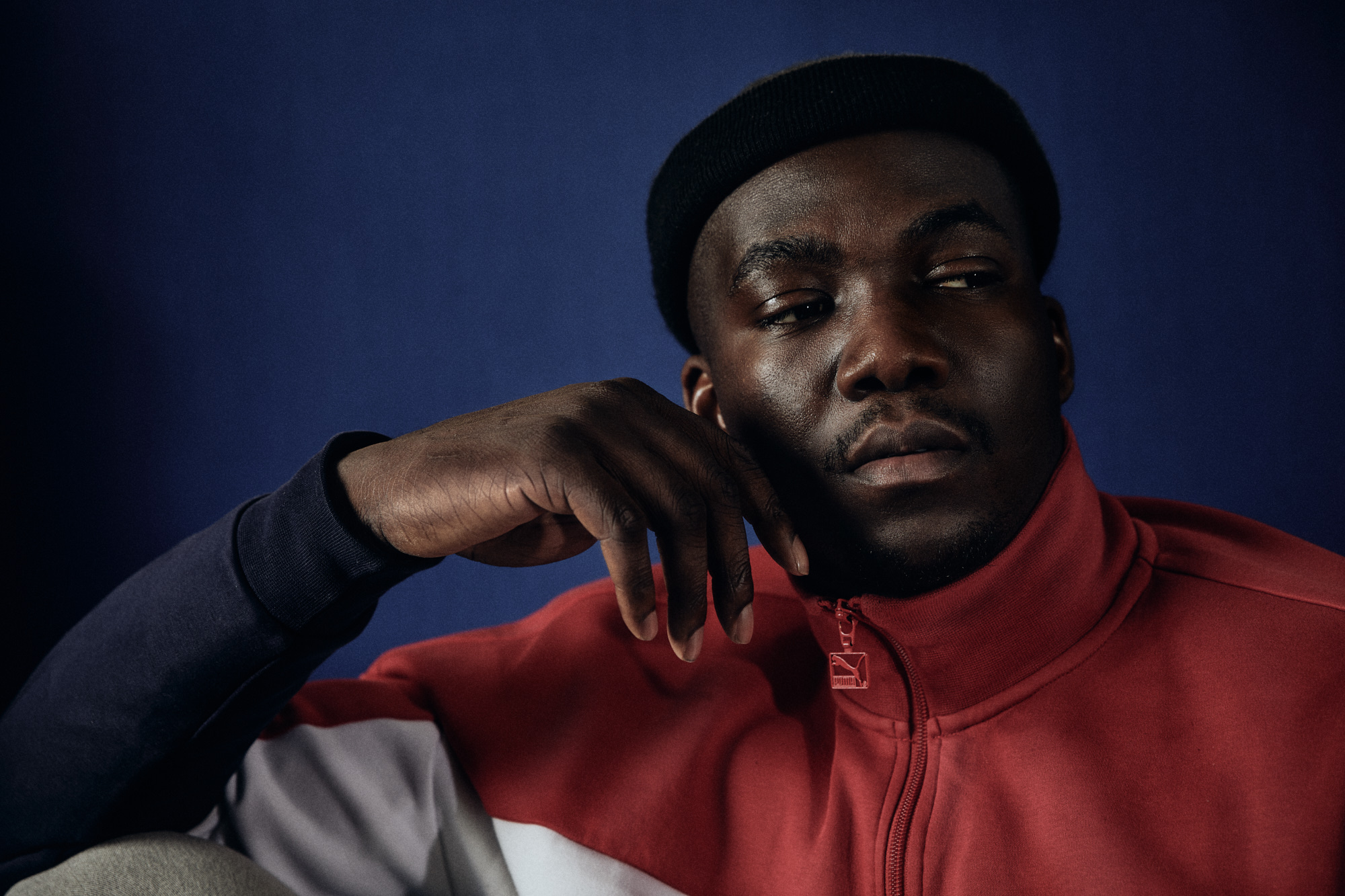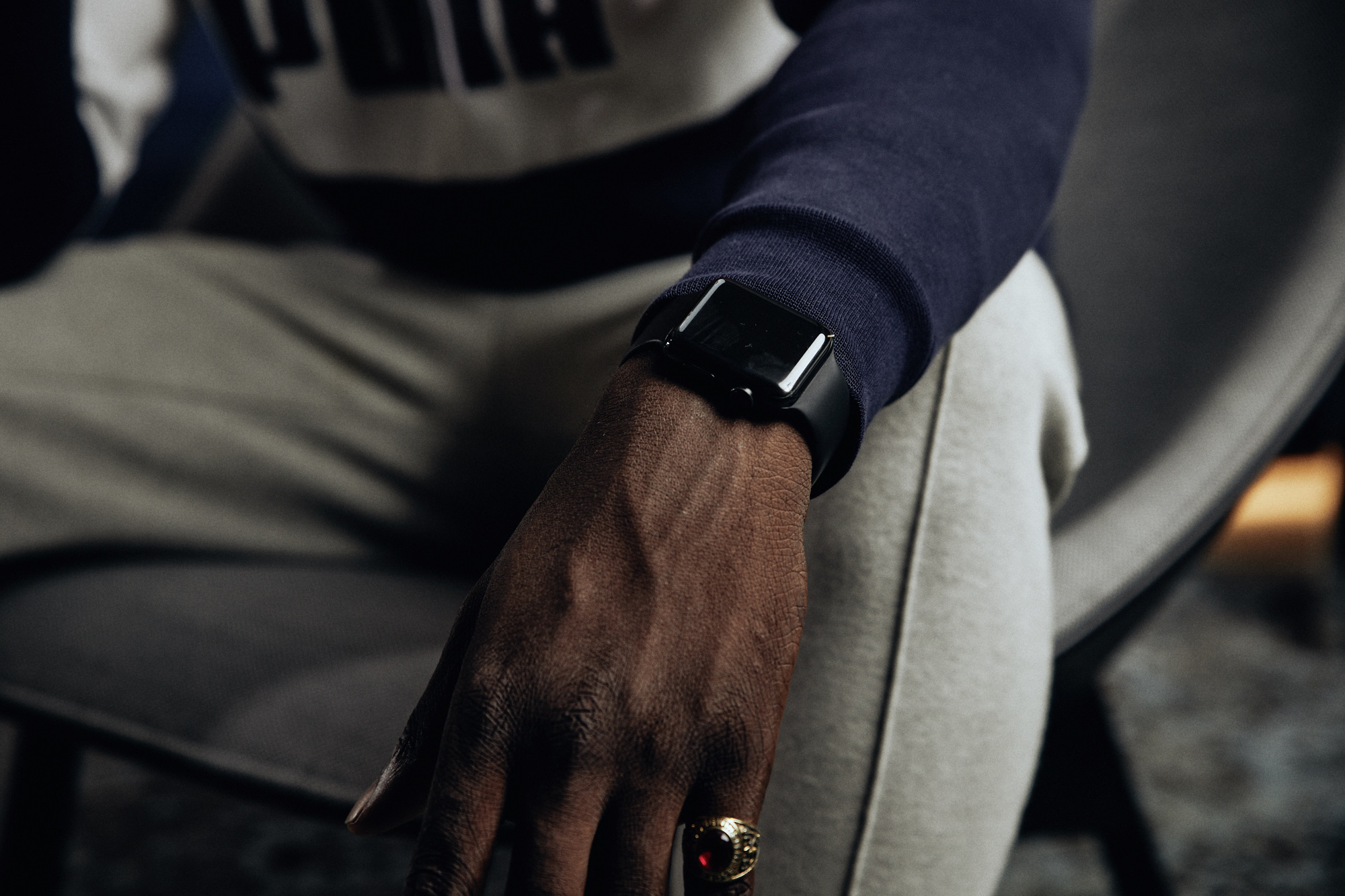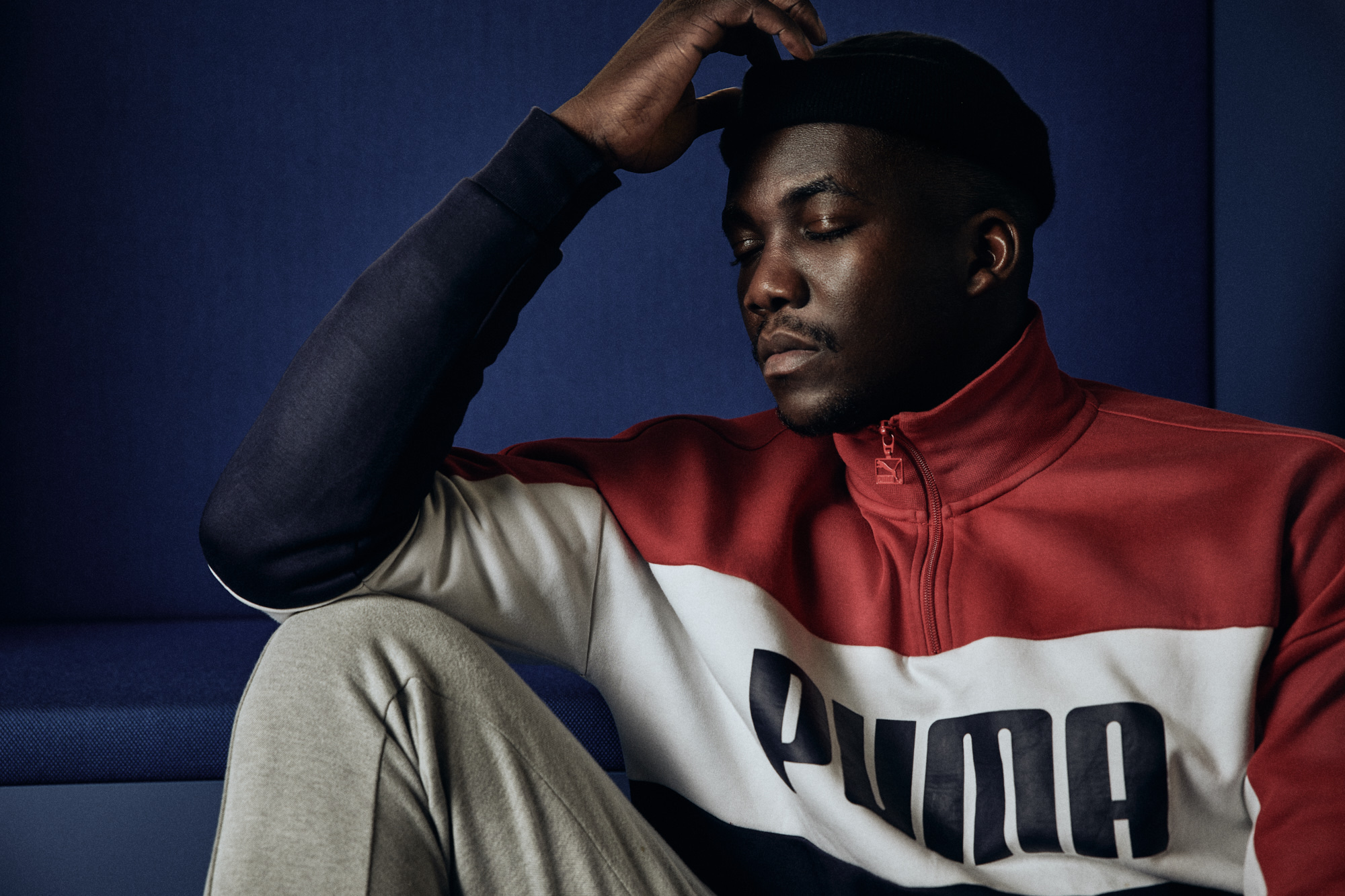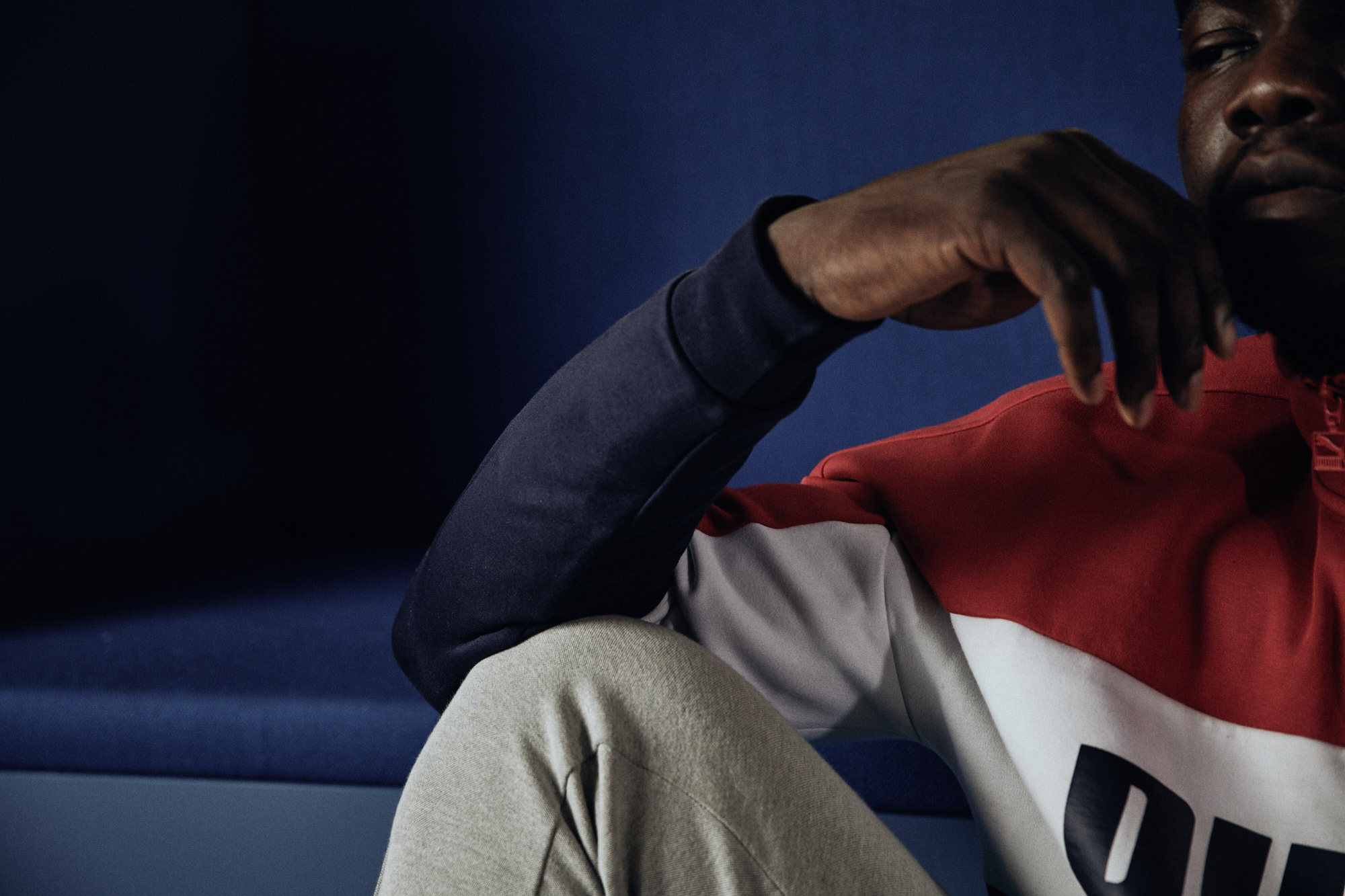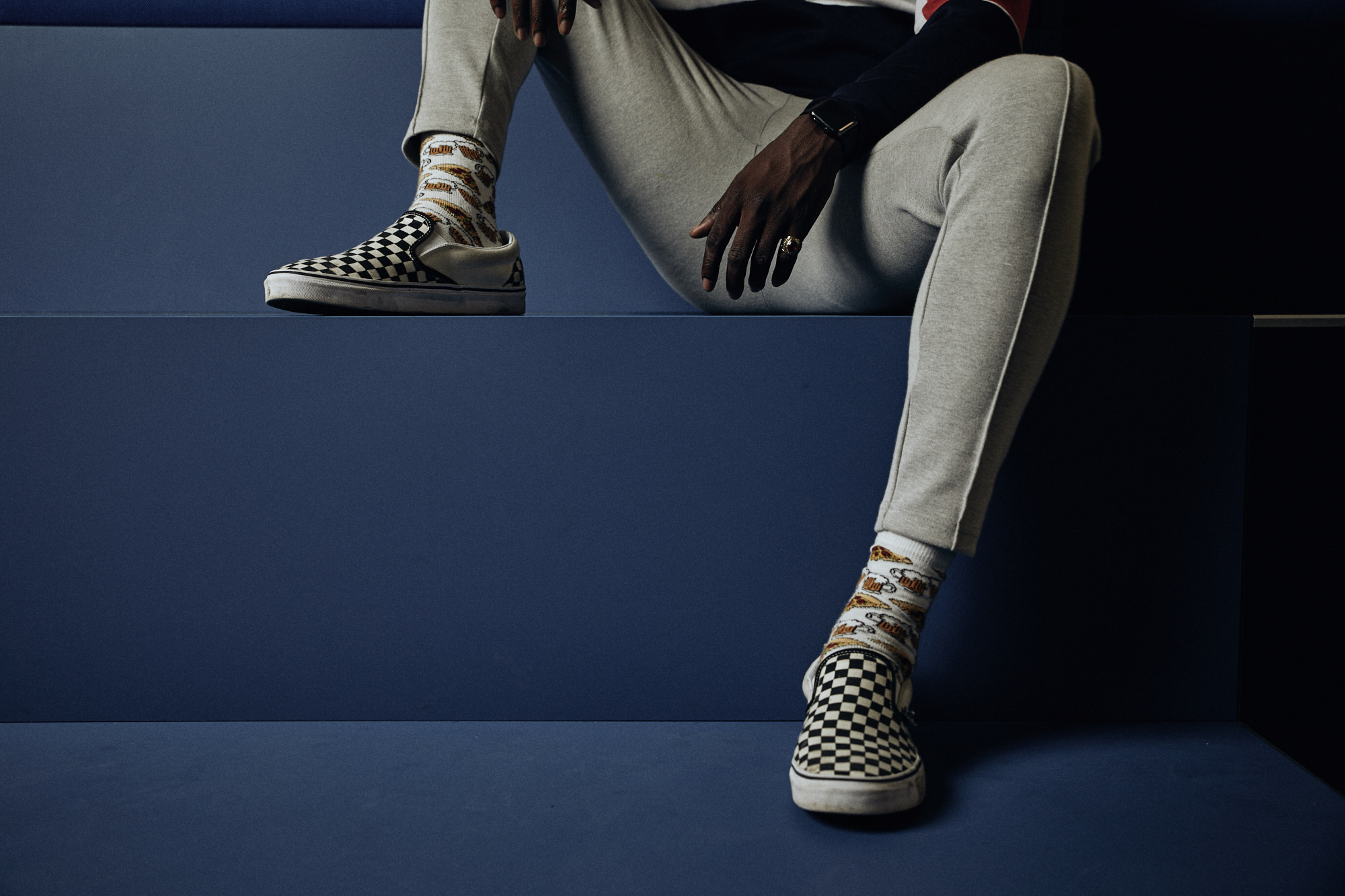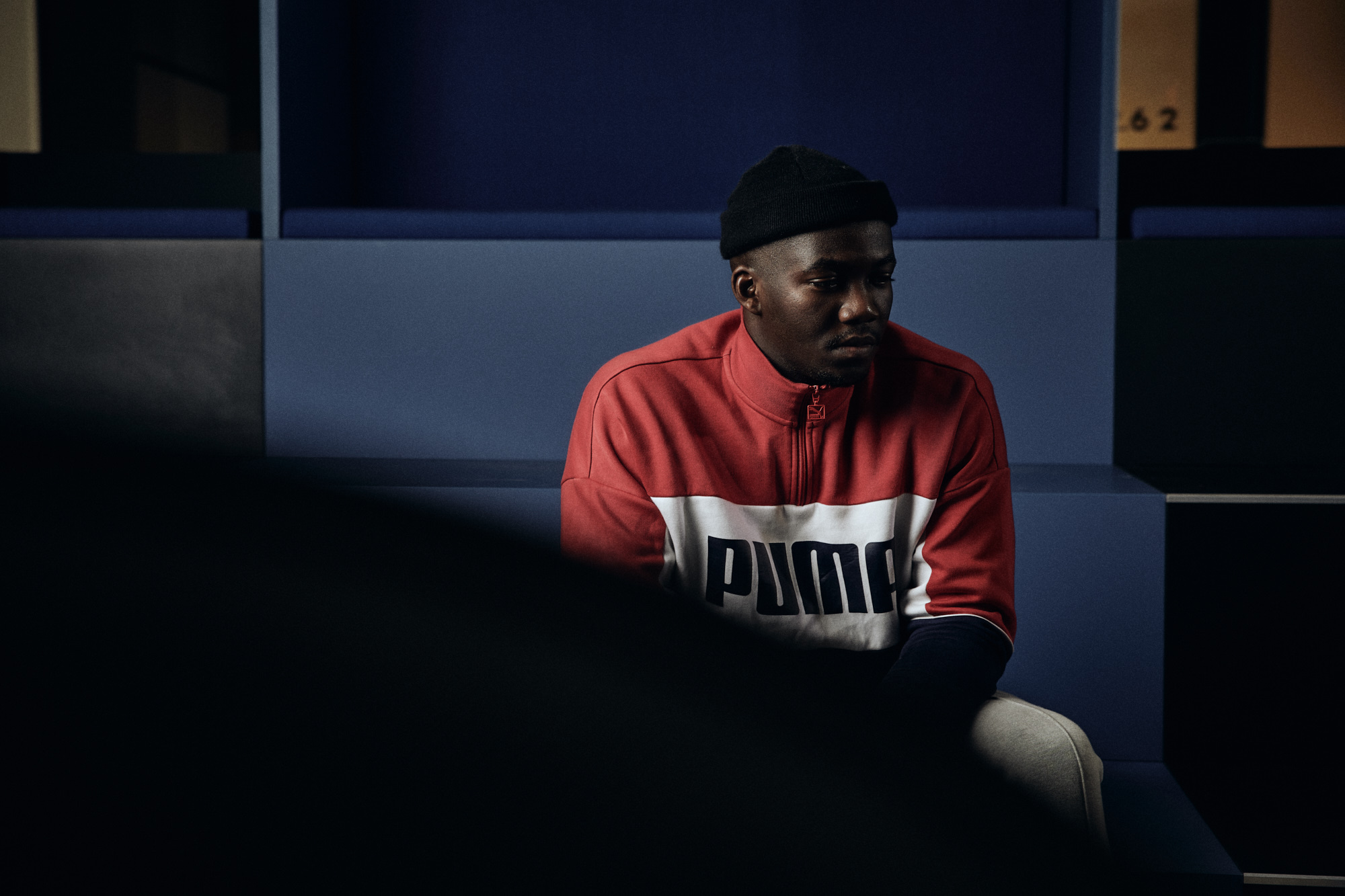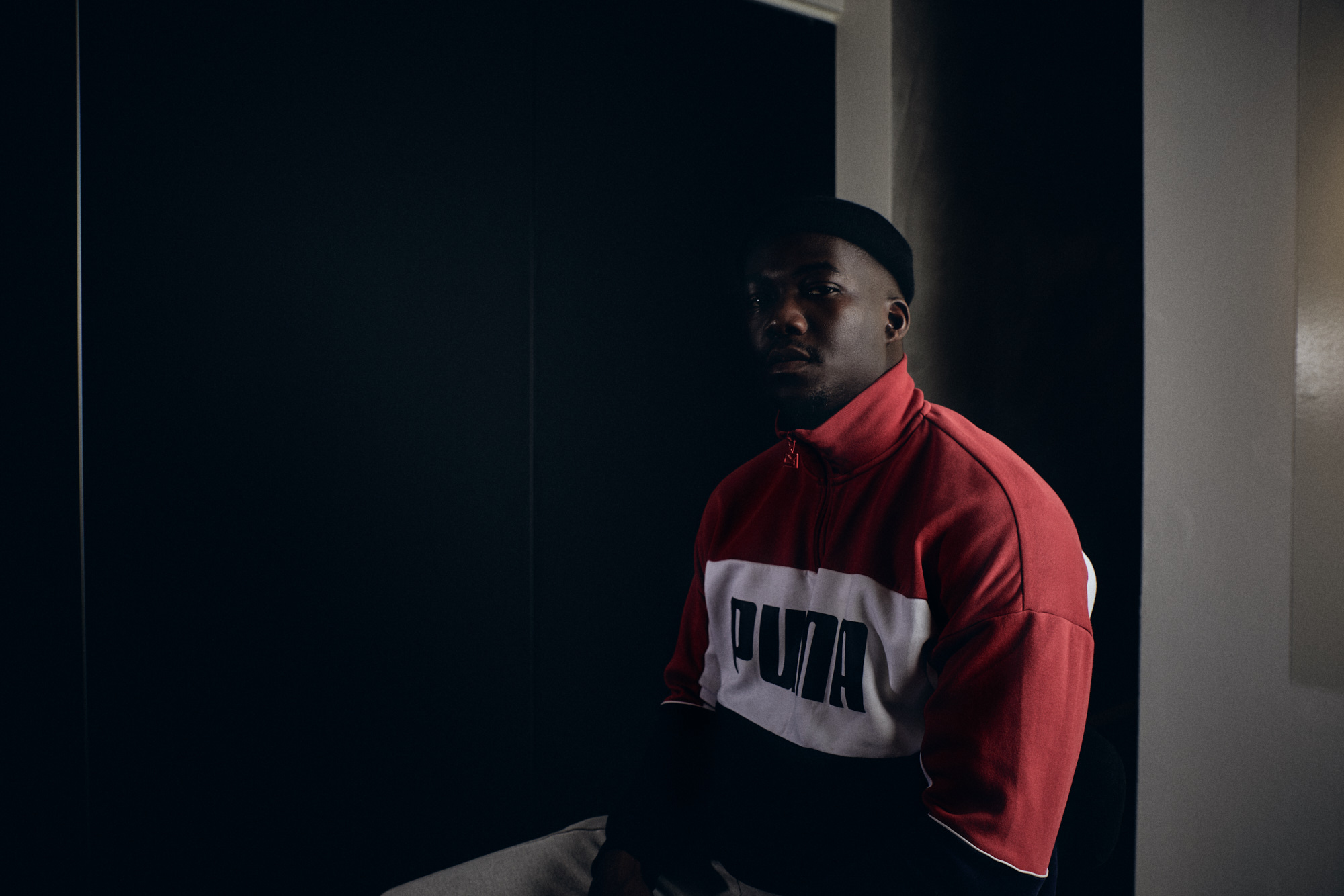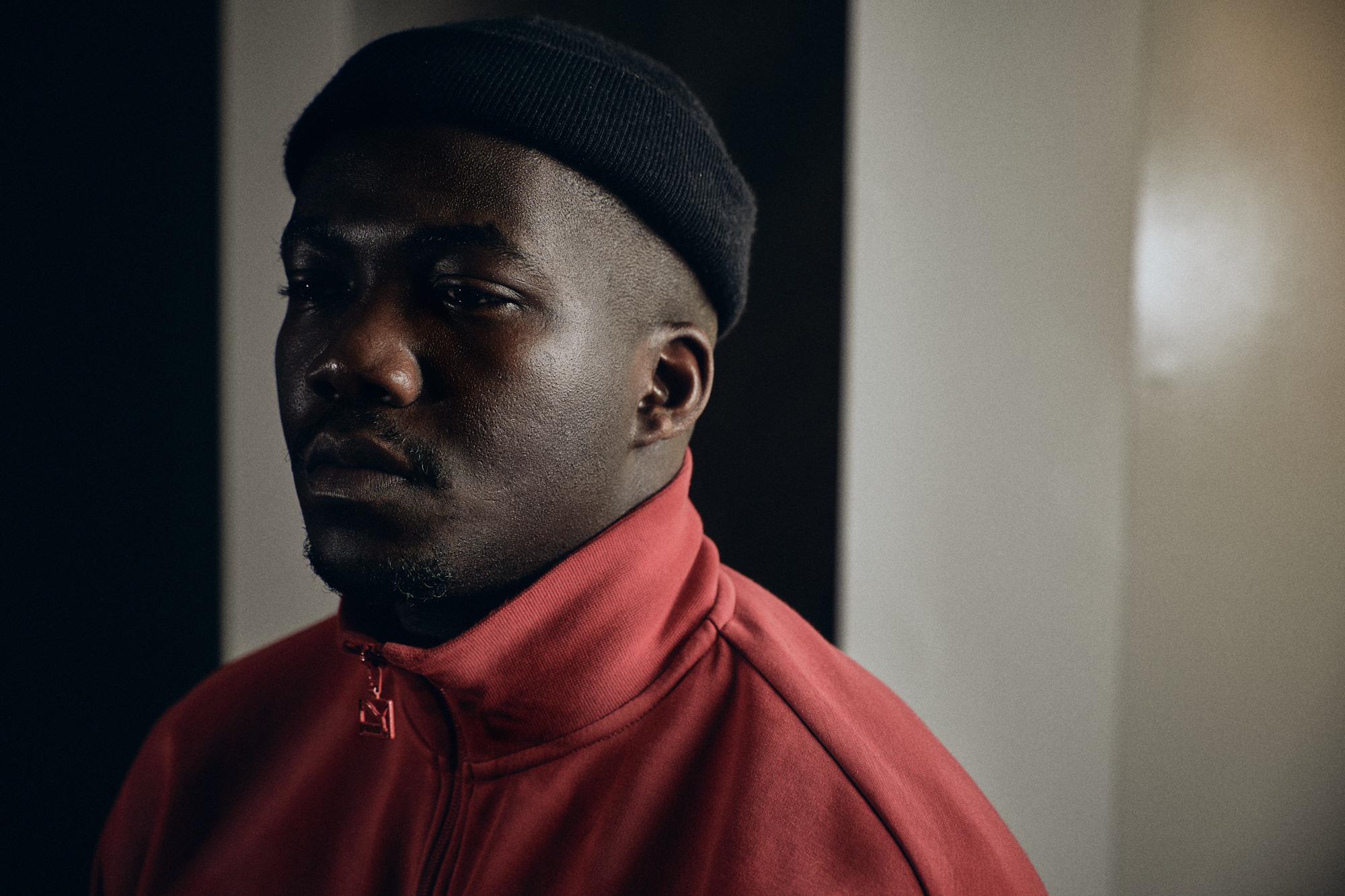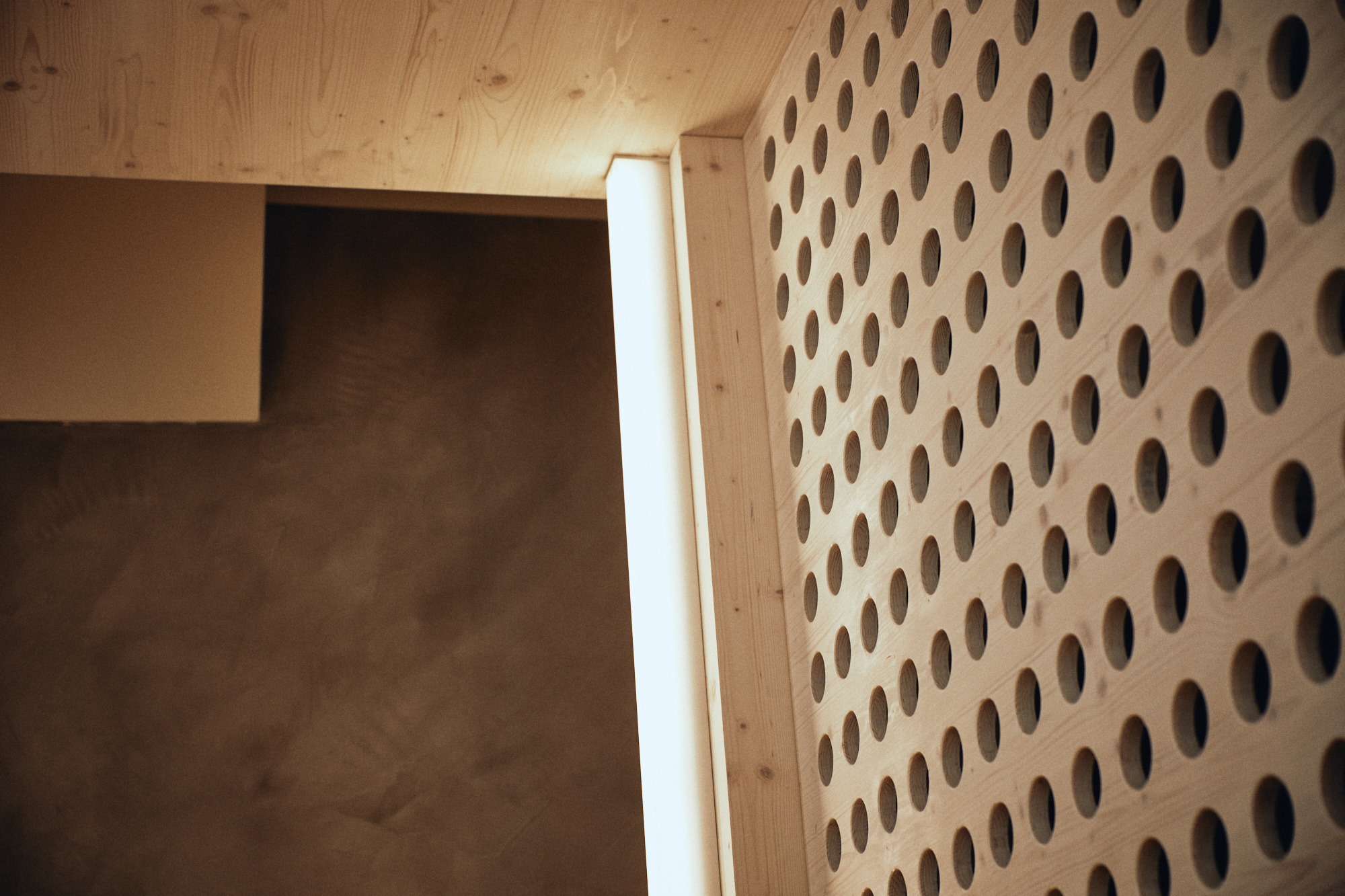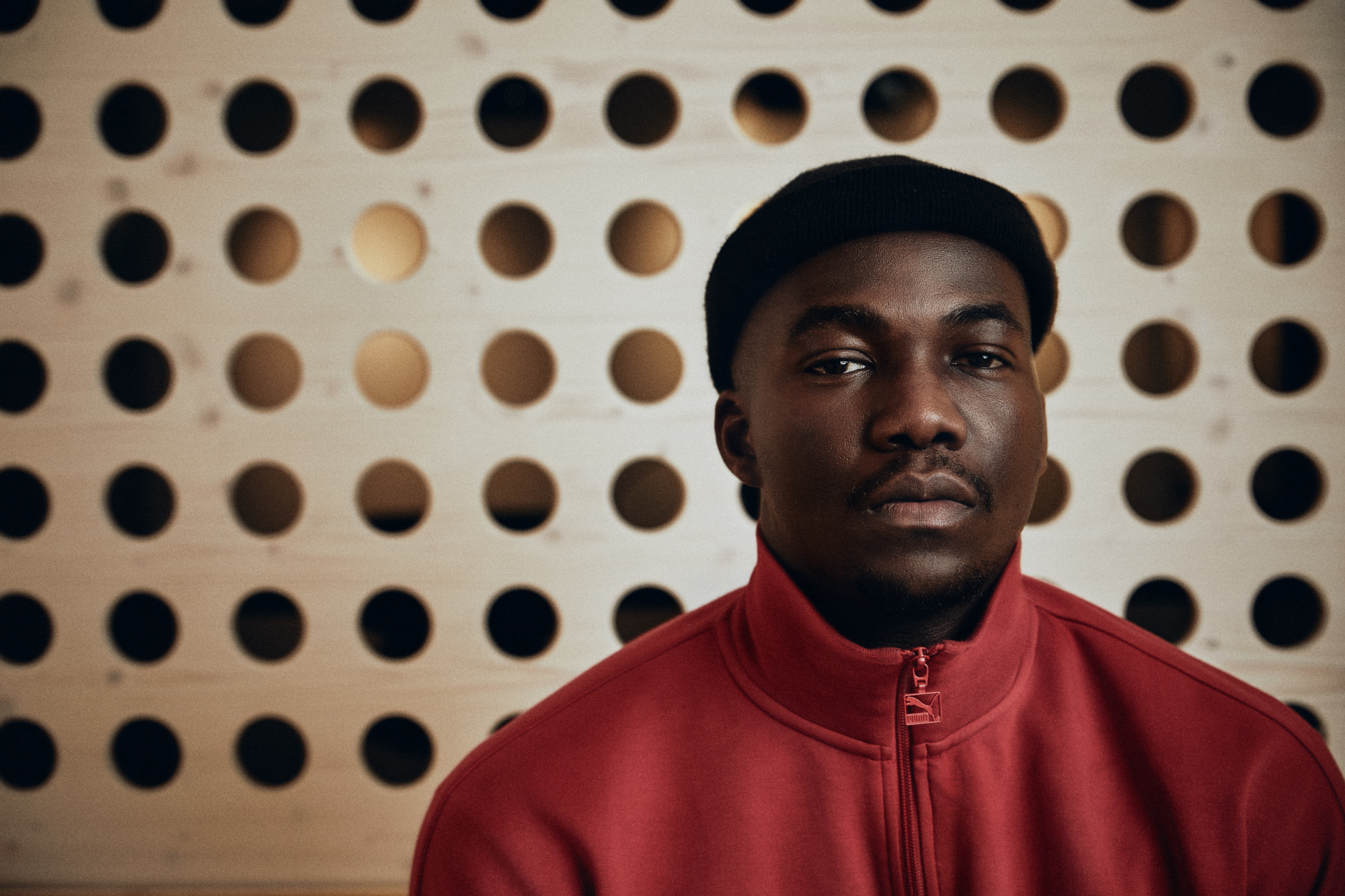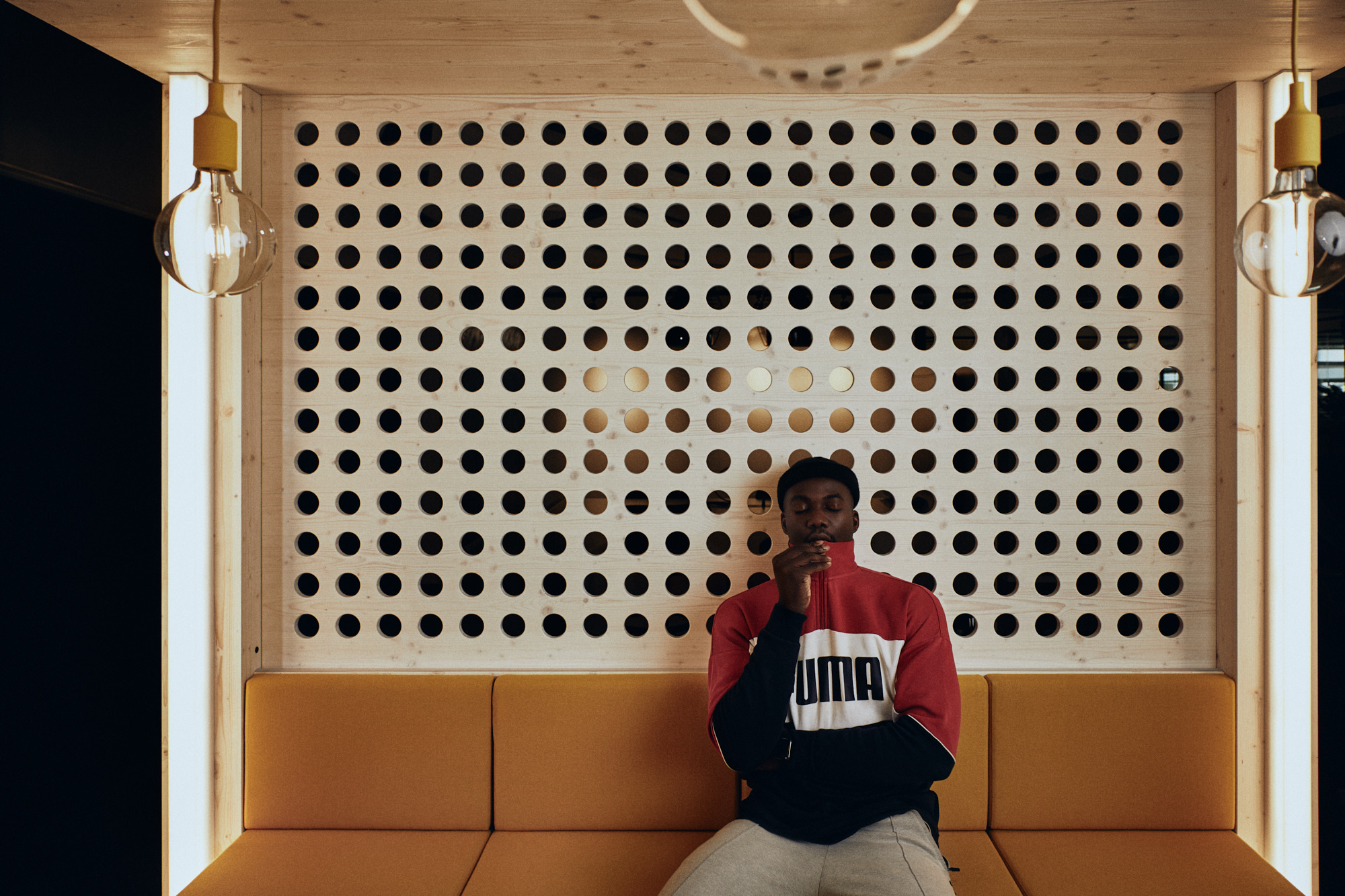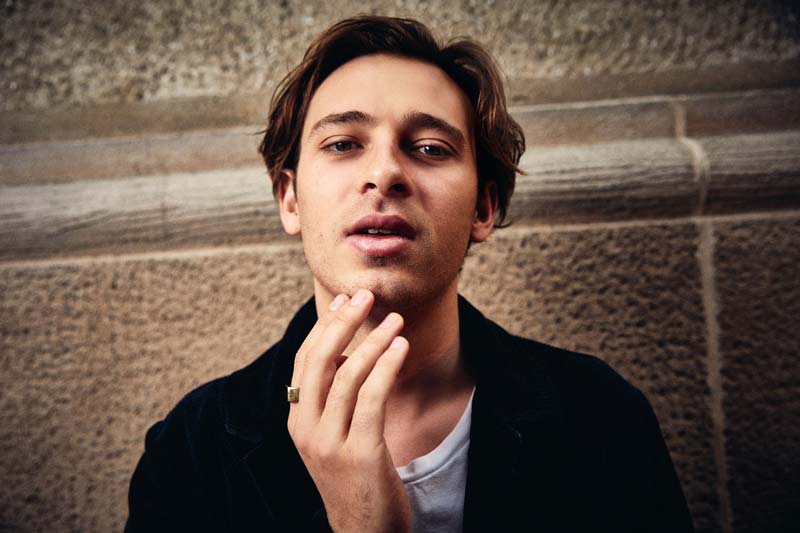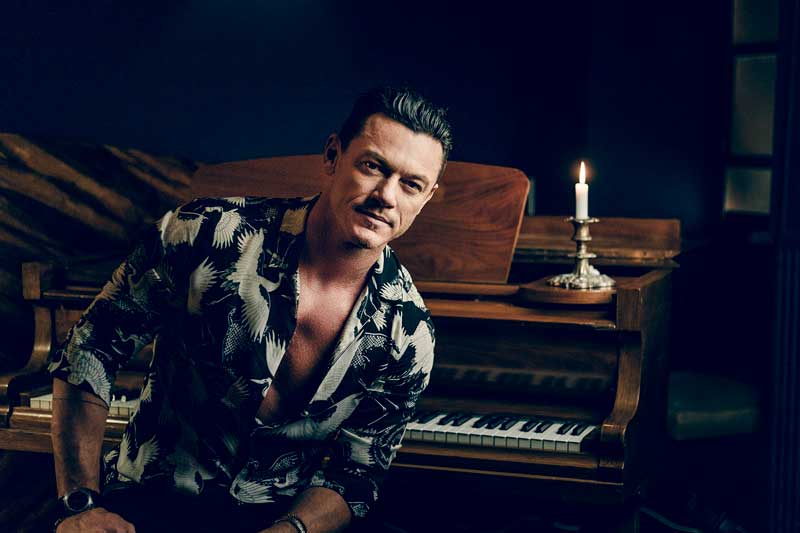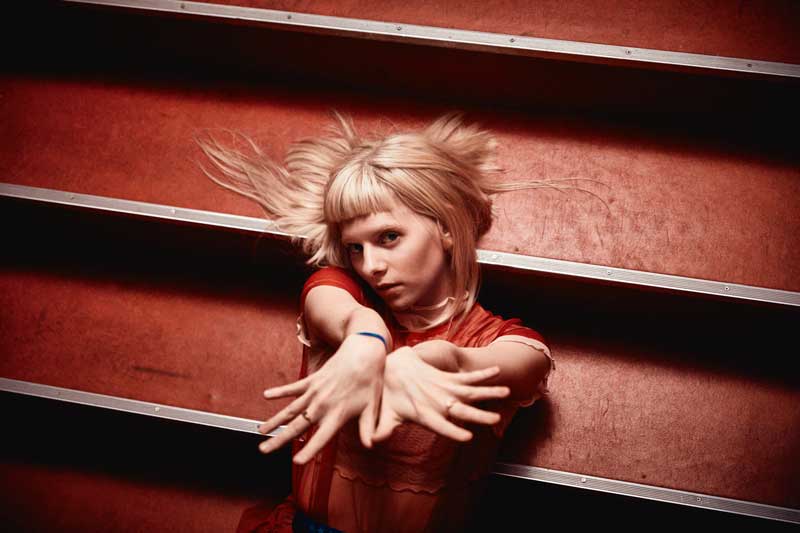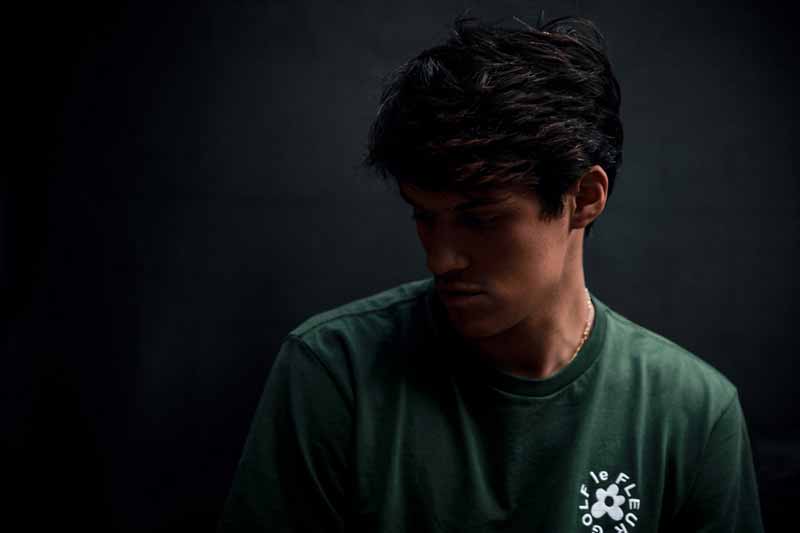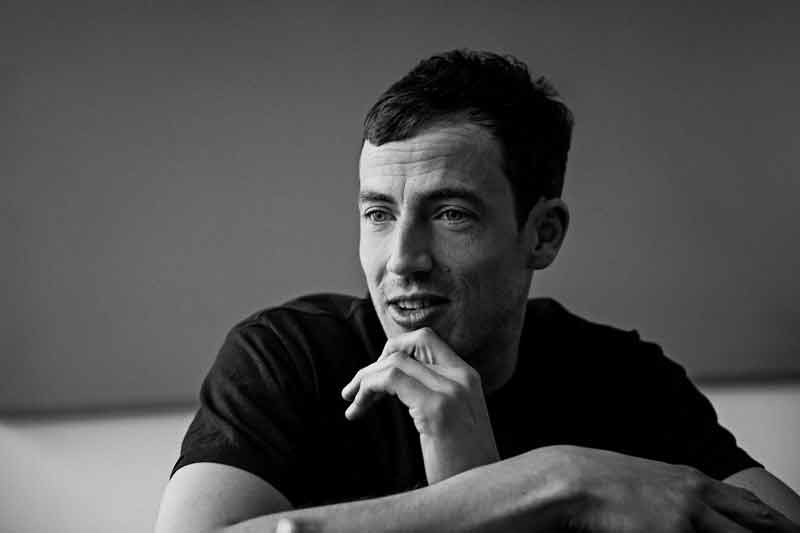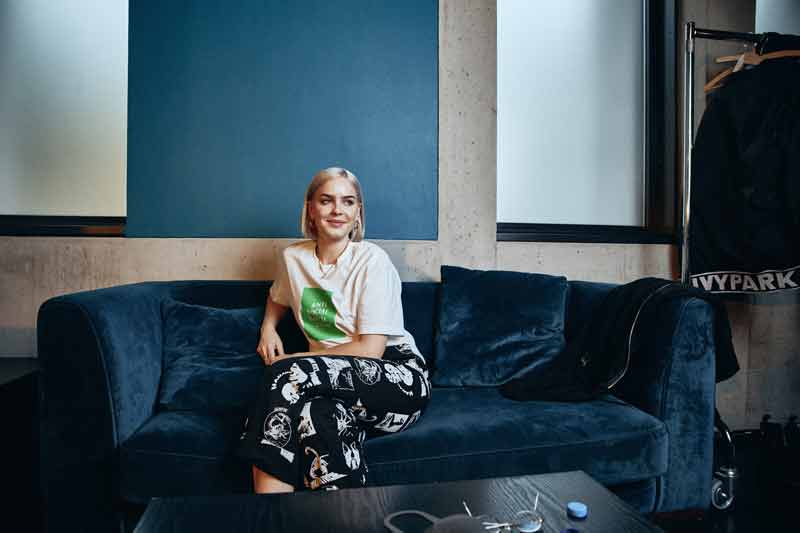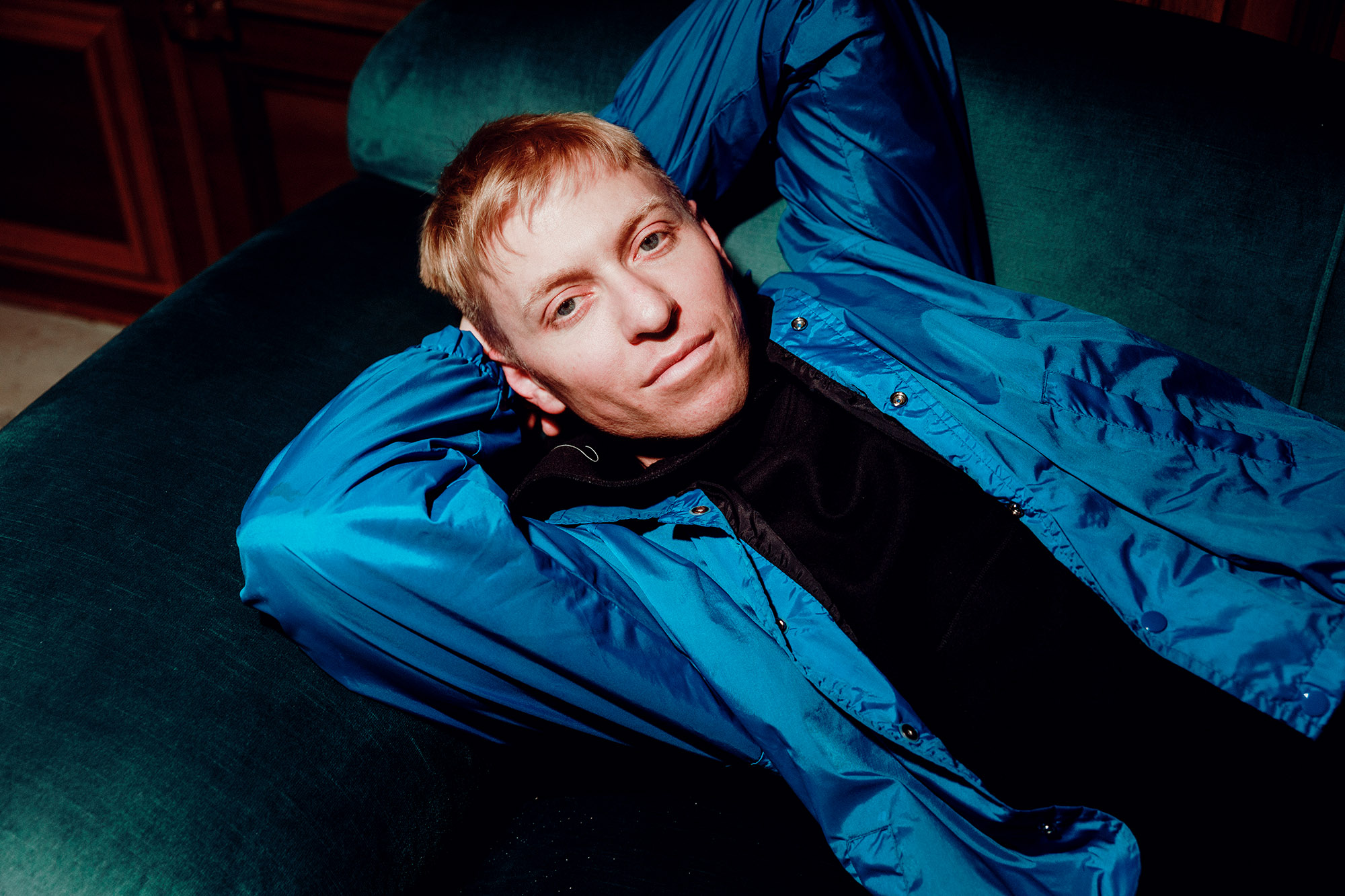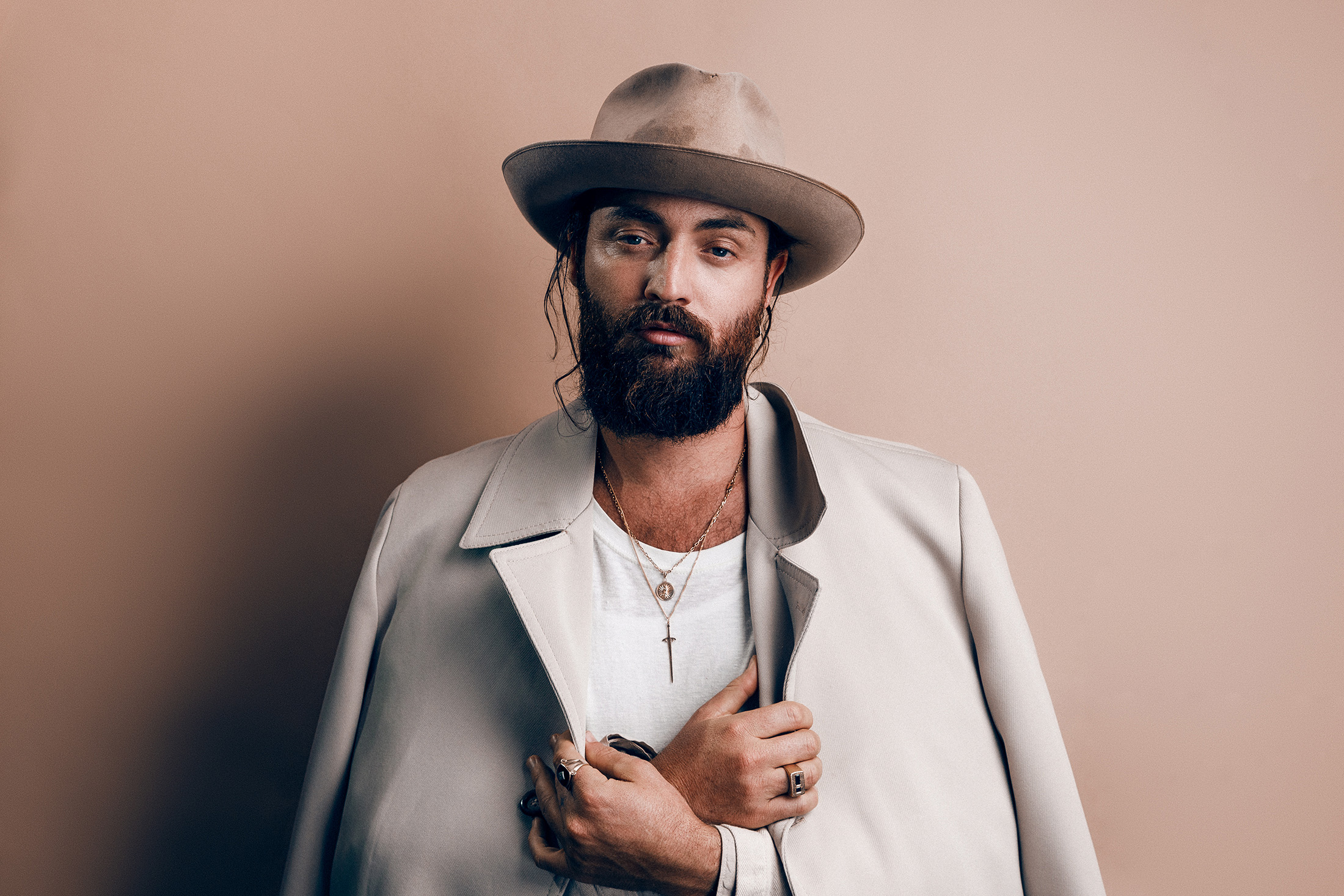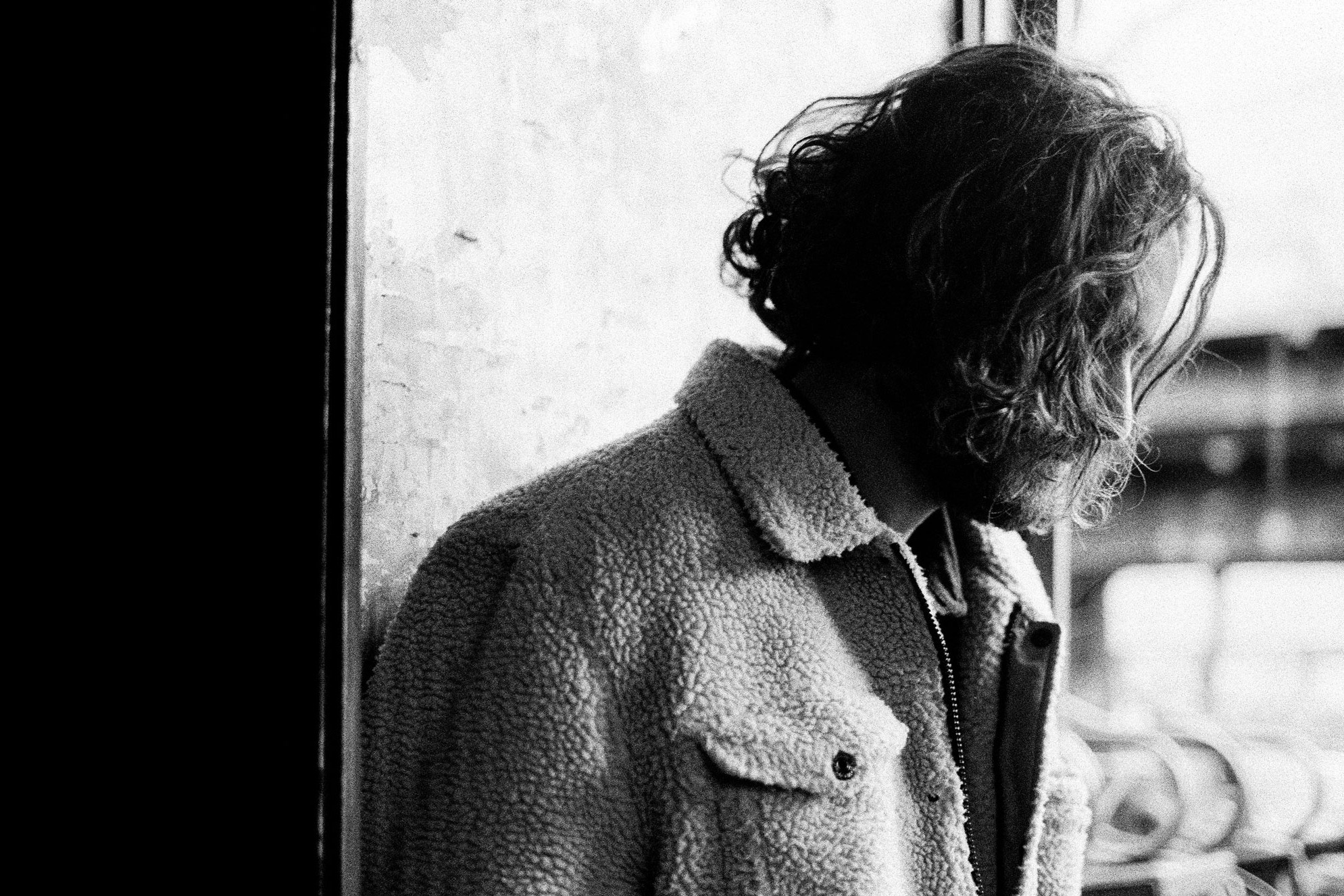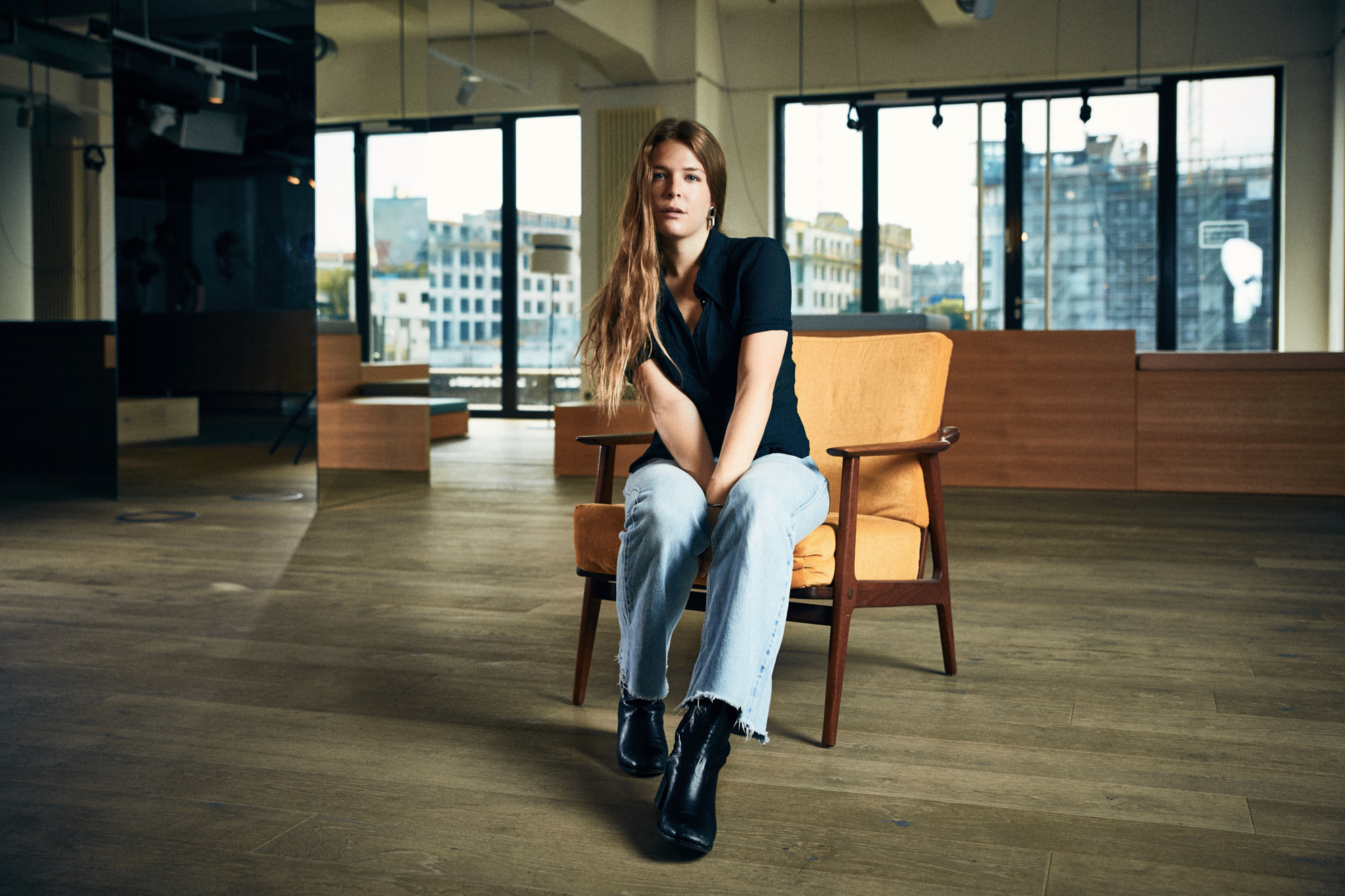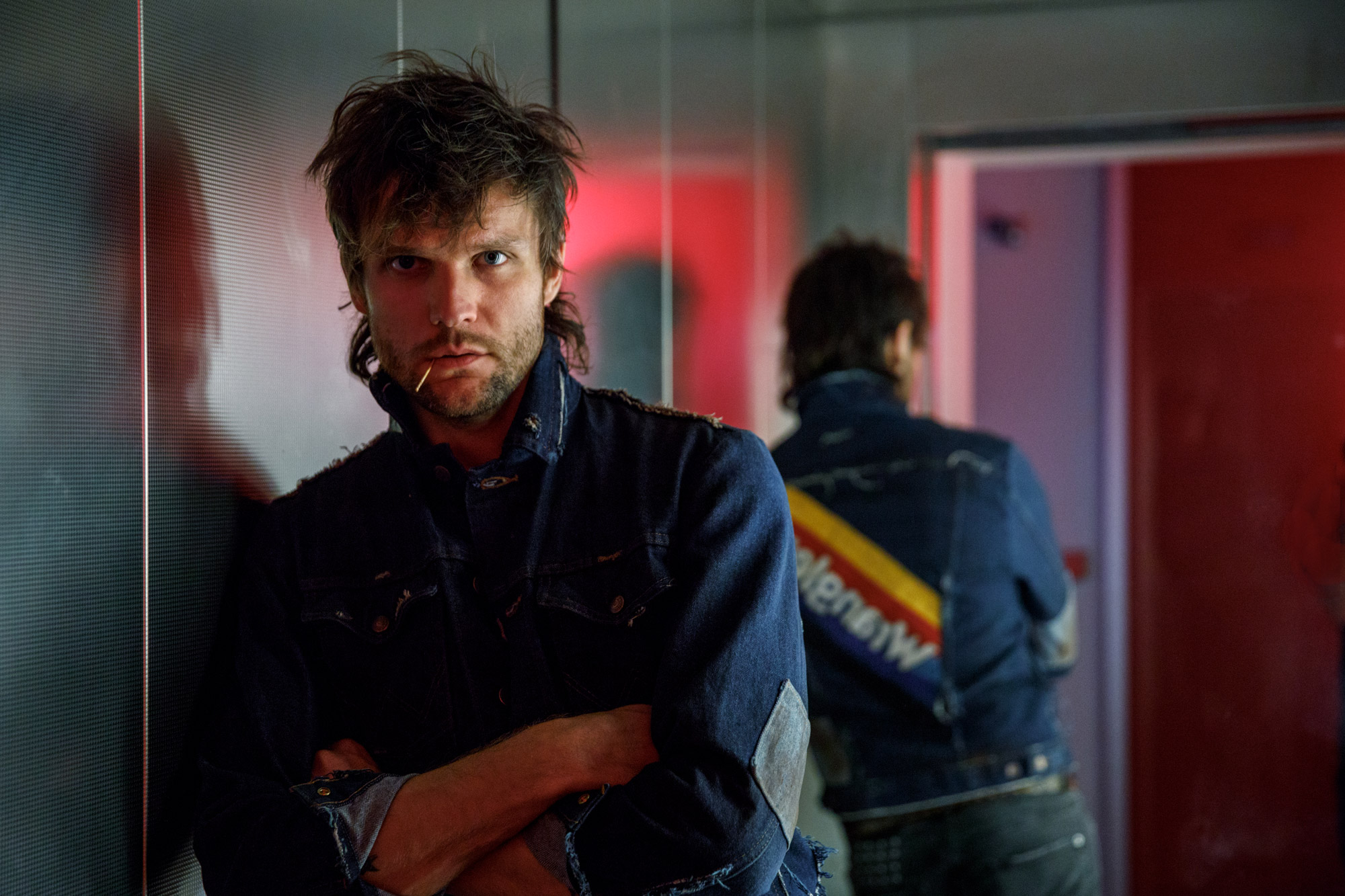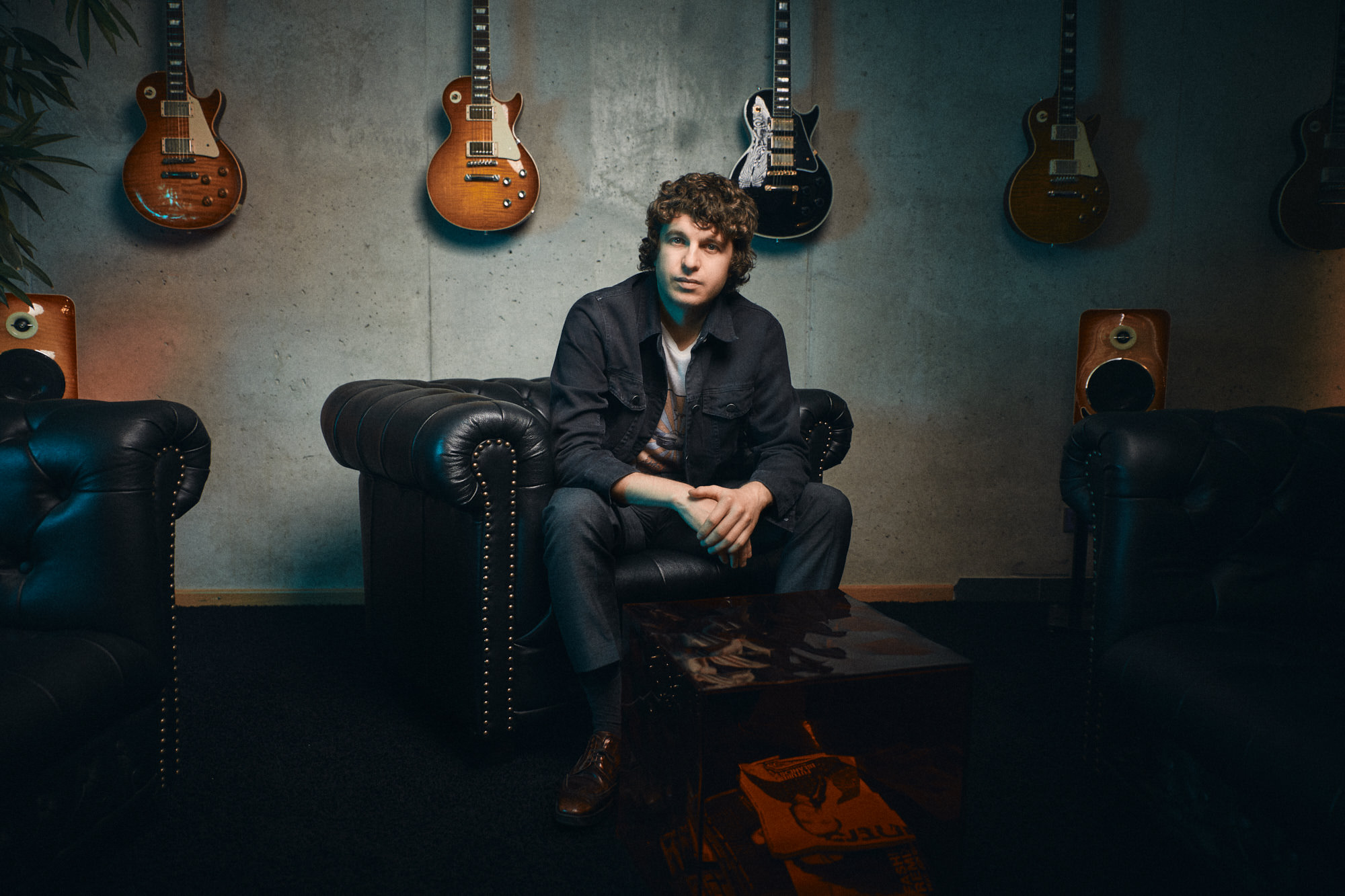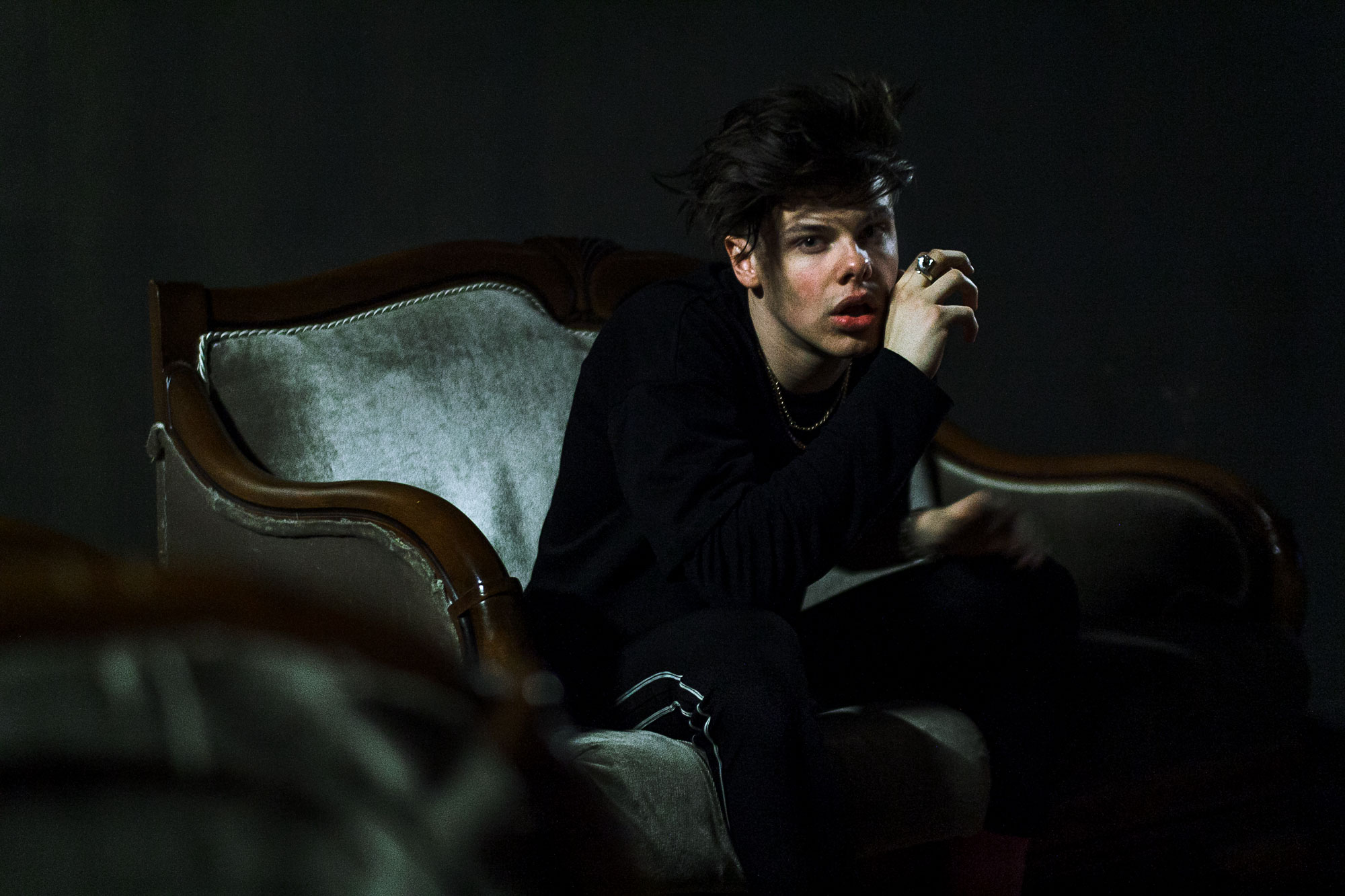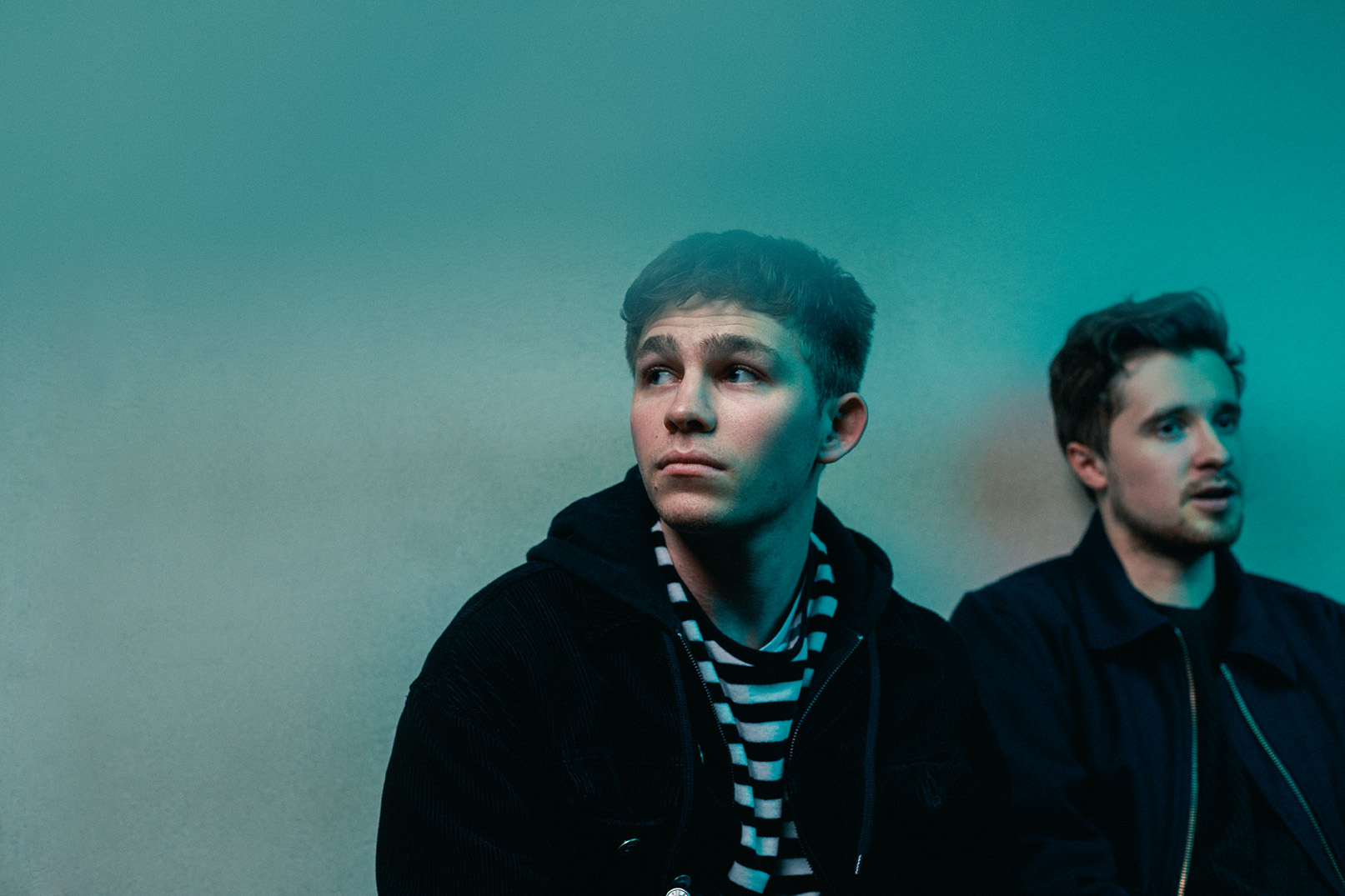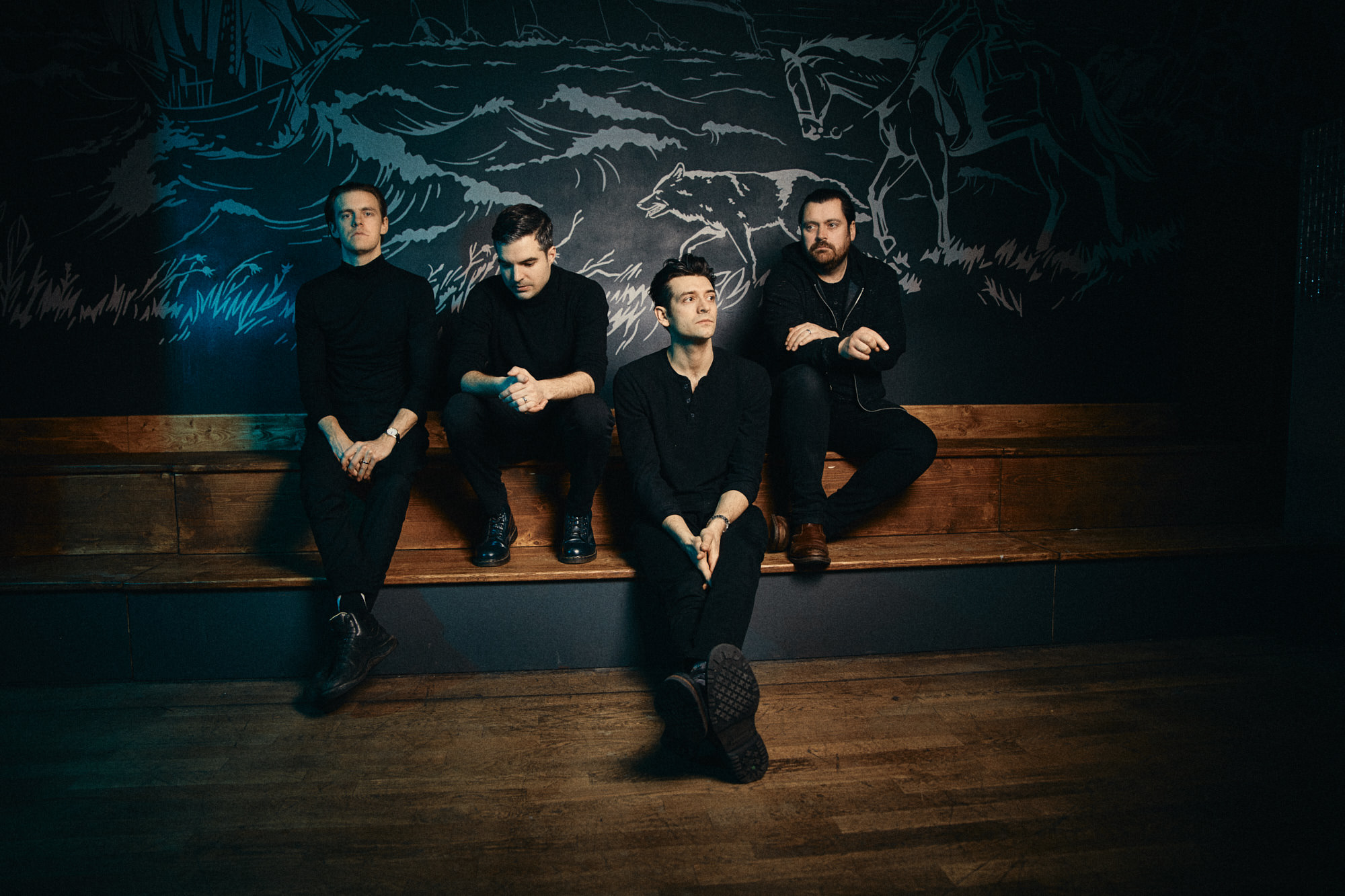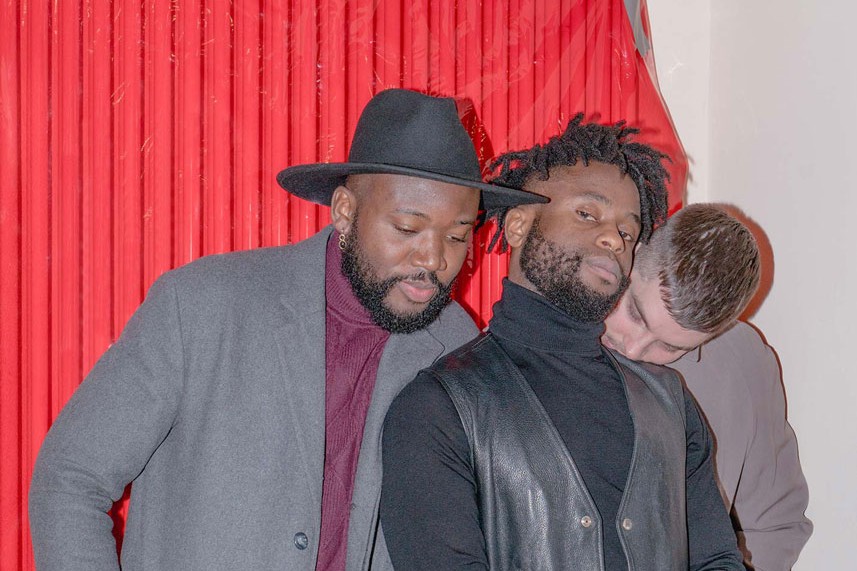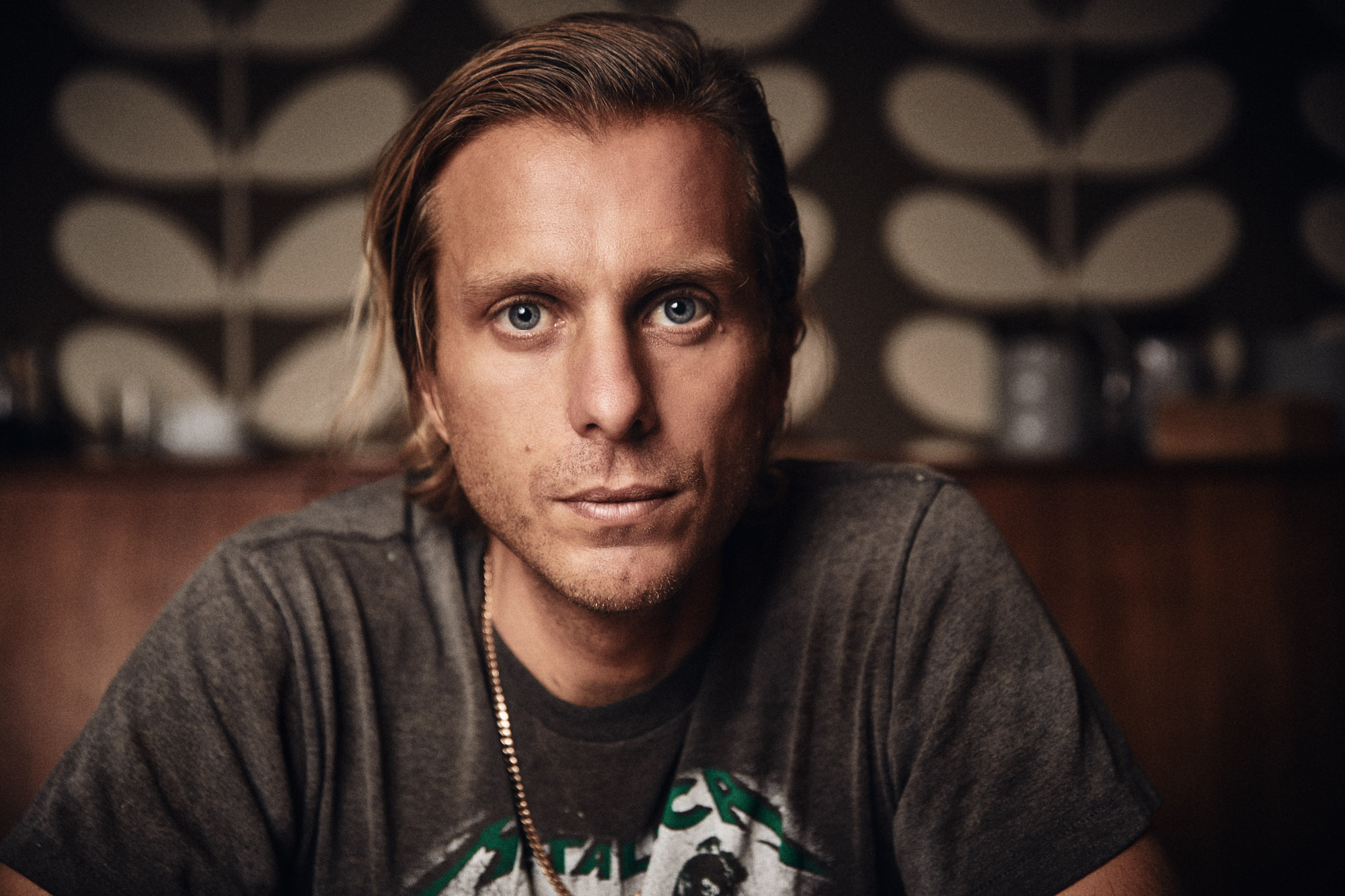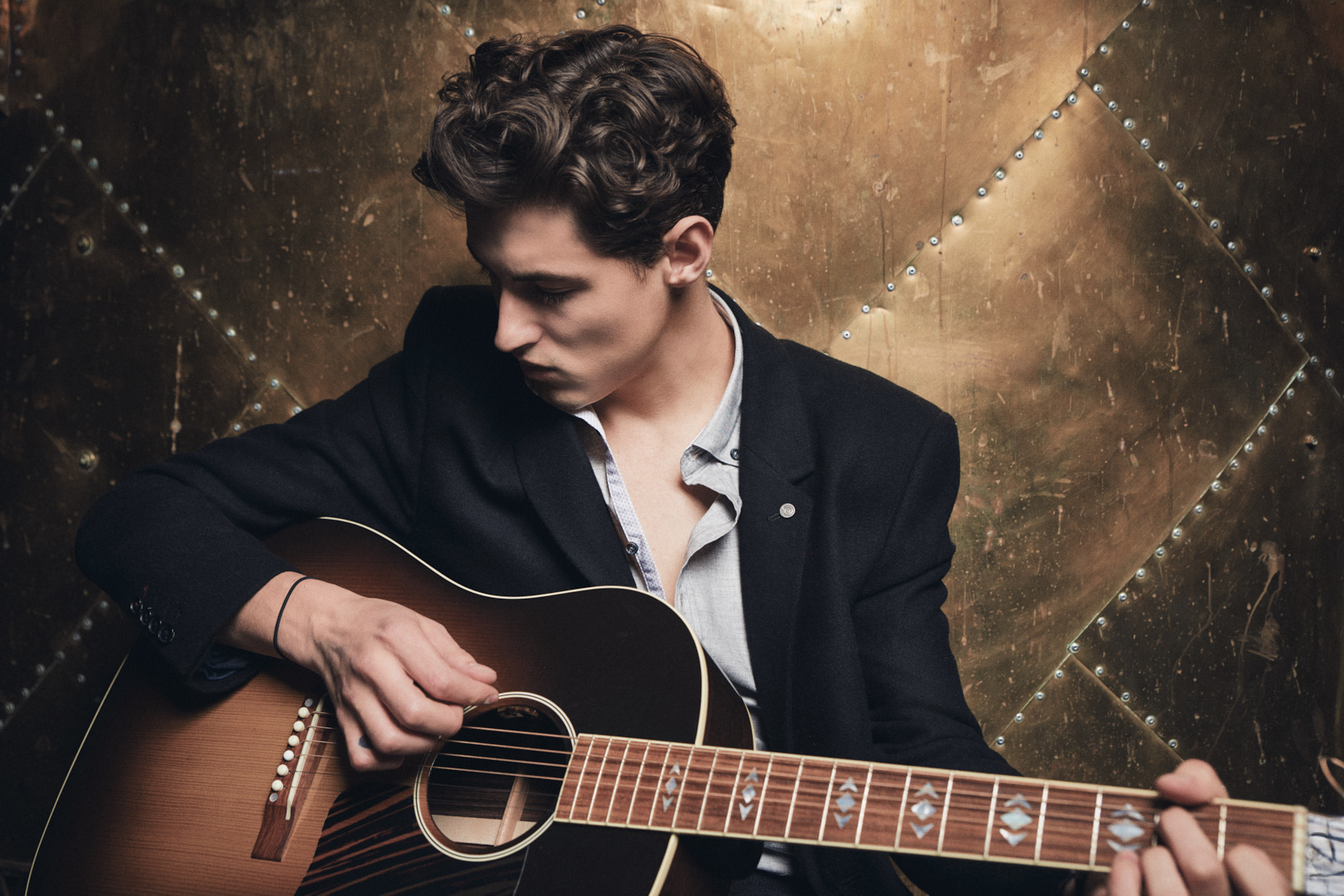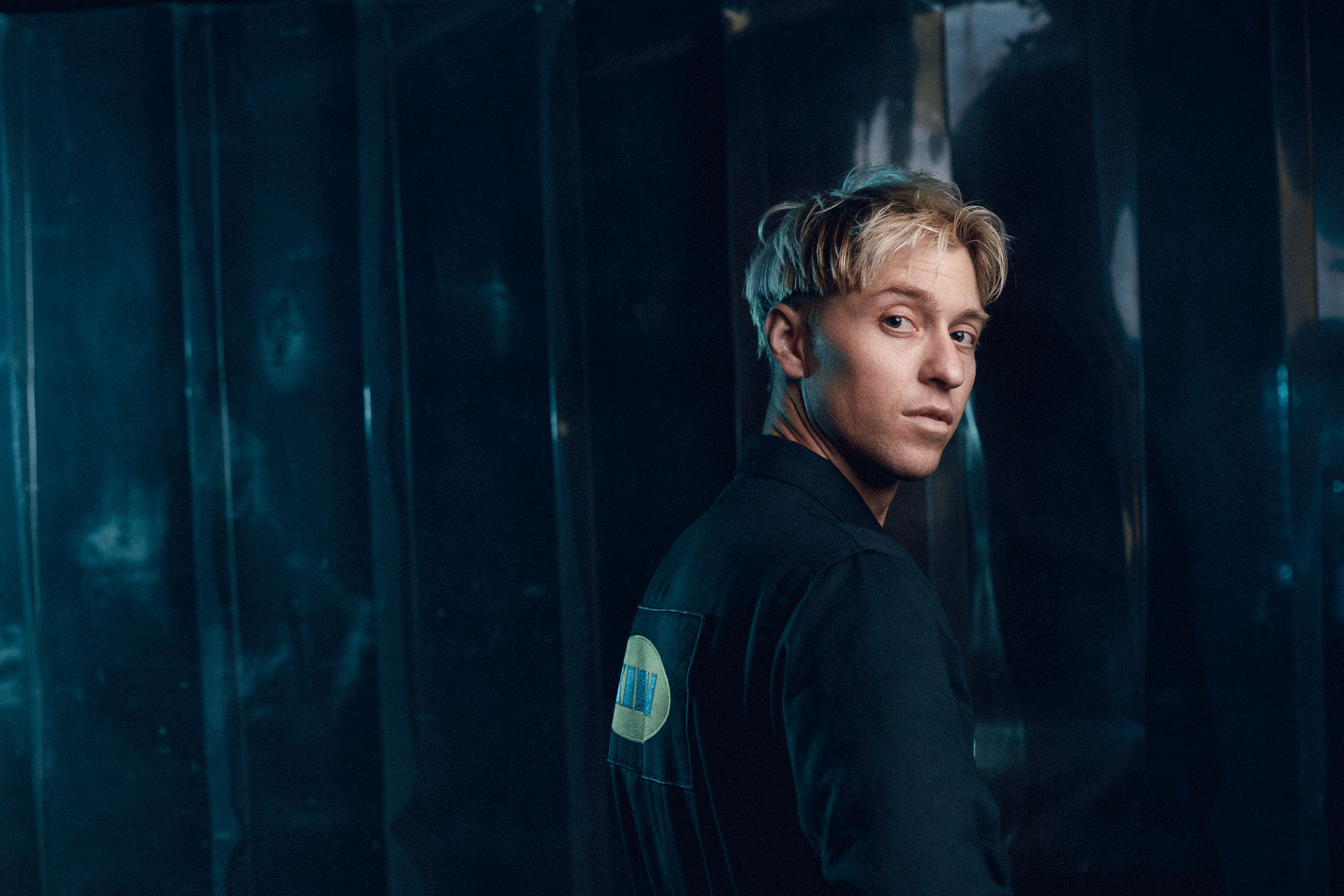Interview — Jacob Banks
The Greatness Of A Village
With his debut record “Village”, British-Nigerian singer-songwriter Jacob Banks delivers an impressive musical performance full of different genres. And as if that wasn’t enough, he adorns each of his music videos with a high-quality visual language that makes it look like a sequence of a Hollywood movie.
2. November 2018 — MYP N° 23 »Instinct« — Interview: Jonas Meyer, Photography: Steven Lüdtke
“This guy would make a great song for a James Bond film”—what a YouTube user posted four years ago under Jacob Banks‘ music video „Worthy“ would probably, in most cases, sound like some flattering fan-talk that can’t be taken too seriously. But referring to the 27-year-old singer and songwriter from Birmingham this wish is more than justified. Jacob Banks is an exceptional musical talent: his deep voice is so powerful and absolute that it could awaken a whole British village.
Speaking of “Village”—that’s also the title of Banks’ debut record that enriches the musical world from November 2018. Last year, after he had played some songs from his EP “The Boy Who Cried Freedom” at the 40th annual gala of New York’s New Museum, Vogue called him an artist who “reintroduces soul music to today’s young generation”.
But is Jacob Banks just a modern ambassador of soul? His debut album sounds rather as if the most diverse music genres have united to speak with a strong common voice. We met the thoughtful British artist for an interview at Universal Music’s headquarters in Berlin—and found out why it’s important to tell music through film, why no one is born a racist, and why it takes a whole village to raise a child.
Jonas:
A couple of weeks ago you released the music video for your song “Be Good To Me”. This video was written and directed by yourself. How did you create the idea for it? Did you already have some specific pictures in your head when you were writing the song—and you just had to fall back on these visuals? Or did you have to experience your song from scratch to get visually inspired?
Jacob:
I think being someone who is creative feels like a job around the clock, it doesn’t stop, it doesn’t just happen when I’m in a studio. I’m always looking for stuff that inspires me or looks weird, looks different. Long story short: I follow NFL on Instagram and I saw a short video of a football training session. What they do is when two players are running for one position, they make the two of them have a tug of war. And whoever wins, gets the play, gets to be the star in that position. I liked that a lot, so I built the story of my video on the back of that.
»I try not to be a selfish musician.«
Jonas:
The video’s scene of two men bound by a red rope and fighting each other in a tug of war is a very strong key visual. Is there an analogy to your own life? Are you torn sometimes by different ways to go, by different decisions to make?
Jacob:
It always is, it always pulls on past and experience. But I try not to be a selfish musician. Once you have given your work to the people, they take from you what they need anyway. At that point, it doesn’t matter what I think. So, what I do is the following: I would place enough evidence in front of you and have you make up your own mind. It’s important to me that, whoever is watching, has to become the main character—I want you to be the lead character of my music video. If I’m too descriptive, if I take everything away, if I leave you only one option, it doesn’t make it much of an interesting journey. I just put enough pieces in it where any viewer can take from the video whatever they need—because whatever you see lets me know that you know there’s a problem in the world and we should all be fixing it. If I spell out for you, you can pretend that you don’t know: that racism doesn’t exist, for example. That women don’t get paid the same as men. But if that’s what you see, it means that you’re aware and that you should be working to estrange from that.
Jonas:
Most of your videos are defined by a very strong visual language, they kind of look like sequences of remarkable Hollywood movies—in terms of the arrangement, color grading, costumes, or location. Where does your obvious love for film and cinematography come from?
Jacob:
It comes from nobody wanting to work with me, man! It sort of is, I’m cheaper than most directors. I work for free, for myself. I have to pay me nothing. But not only is it cheaper, it’s also a lot of fun. I do these videos with my best friends, the people that you see in it are my homies. It’s so much fun to work with people you care about and love, it’s a story to be told by itself. I’m very much a creative, my whole thing is expression. The journey of figuring out what it means to create a good visual is fun to me. It’s stimulating, I enjoy the process, and on the back of that, it’s giving me a love that I have for the rest of my life. When I watch films or TV shows now, it’s like there’s a new layer in it. I’m not just watching it for the action scenes, I also like the camera work, the grading or the way the music builds the tension. It’s giving me a new level of love for something that I admire and I’m so grateful for that. I have to think about all these things I just used to watch and didn’t give a shit about. And now it’s like “Wow, that’s a nice yellow!” or “The light is great here!” I’m so thankful to have that, it’s like unlocking a tiny percentage of your brain that you never used before. I feel like I stand up and always find more and more doors to unlock.
»If you’re more of a storyteller, music videos are an avenue to change how you hear music.«
Jonas:
When TV channel MTV was launched in August 1981, it presented something very new to the world: music videos. We’re both too young to have witnessed it, but when you look at the music industry today, do you think that music videos have to meet a different standard compared to the early 80’s? Or is there a general, timeless recipe that makes a music video a good music video?
Jacob:
I think it depends on what type of artist you are. If you’re living more in the pop world—and pop just means popular music—, I don’t see a specific recipe for music videos. But when you’re a hip-hop or R&B artist, it has always been about branding. You can rarely watch a hip-hop video where the artist isn’t in it. You can see the artist’s face in every scene because they’re selling a product. The video says: “This is him or this is she. Love them! Love them! Love them!” They want you to consider them the center of the world.
If you’re more of a storyteller, for me anyway, music videos are an avenue to change how you hear music. I could write a song and you might think this is about love. And when I show you the video, I’m like: “What if it isn’t?” That’s how I see it: I get to allow the song to live in more than one space, I get to show you a different perspective on how to take in a story. I feel like that’s important. The more ways you can hear music, the better.
By the way, today’s music industry, for visuals, isn’t as nice as it used to be: any director who was working 40 years ago would hate the new generation—because they don’t get paid as much. But in my opinion, it’s better now: it’s not about being popular anymore, it’s about creating good content. I’ve seen so many incredible videos, there’s so much good stuff! Everyone’s making very good, strong visuals. I think these people are saving the music video thing: today it’s not about TV anymore, it’s about YouTube. And when you’re good at making music videos, people come to watch. It’s a platform where you can show your audience a different way to hear music.
Jonas:
Speaking of YouTube: Not only do you create films for songs. You also create songs for films—like you did for “Equalizer 2” or “Black Lightning”, for example. On YouTube, I found a user comment related to your music video “Worthy”. He says: “This guy would make a great song for a James Bond film.” Would you do if you could?
Jacob:
I would love to! I wish! I keep checking my emails every day (laughs). It’s not that I’m working on one, I haven’t gotten the email yet. But I’m not holding my breath. It always takes the biggest artist of the year to create a Bond soundtrack, like Adele, Sam Smith, Alicia Keys. You have to match the Bond brand with your sound, so the filmmakers don’t really take a risk. It’s very much like they go for what they know is going to work—which is dope because they’ve always realized great soundtracks. But I don’t know—if it happens, I would love to have the opportunity. But I already had some incredible opportunities doing great things for other great things. And that’s something I’m very proud of.
Jonas:
Our colleagues from Vogue magazine describe you as an artist “that reintroduces soul music to today’s young generation”. What do you think, is there a lack of sense for soul music in today’s young generation—or in today’s audience in general?
Jacob:
I just think people can’t relate to it—how could you? We can’t relate to something like “I’m sittin‘ on the dock of the bay / Watchin‘ the tide roll away” that was written by Otis Redding in 1967. We just don’t talk like that anymore. In soul music, everything was like “My baby don’t leave me” and “Bottle of whiskey”. I think people can’t relate to music when they can’t relate to its language.
The issue is: there’s nothing wrong with soul music, there’s nothing wrong with the people, there are just two completely different times and two completely different languages—and they just don’t relate to each other. You can attest to the fact that, in soul music, there are incredible pieces of work that will live forever, but as a 27-year-old singer, that’s just too much. I can’t sing about that type of stuff, it’s too heavy—and it’s not my truth, it’s just not my real life.
The issue of finding a way to relate to people is: you can keep the language, but maybe you have to change the production and find a way to invite people in and make sure you’re speaking your truth. And my truth is that I love soul music. But I also love Skrillex. I love both worlds and I want to find a way to bring all my loves together to make sense and exist on one song.
»Soul music will live forever, but to create a song that is going to live from now, you just have to relate to the times.«
Jonas:
Would you say that, in your music, you try to create a wormhole that connects two far away universes that don’t have a connection?
Jacob:
Yeah, I definitely planned this kind of connection, that’s something what I really wanted. I think “Worthy” was the first song where I tried to bring different worlds together, “Unholy War” was another one. I really love soul music, but I knew that I didn’t want to be a young Marvin Gaye. I love Marvin Gaye, but I also love drum ‘n’ bass, I love jungle, I love drops in tracks. The challenge is: How do I make both happen without sounding like a DJ featuring Jacob Banks? How do I create some authentic stuff…
Jonas:
… that’s just being you.
Jacob:
Exactly. I think soul music will live forever, but to create a song that is going to live from now, you just have to relate to the times.
Jonas:
You will soon be releasing your new record titled “Village”—a word that is pretty interesting. When you’re born and raised in a small village in the southwest of Germany and you fled to a big city, like I did, the word “village” is loaded with so many memories and emotions, good and bad ones. What connotation comes to your own mind when you think of the word “village”?
Jacob:
There’s an old African saying: it takes a village to raise a child. So, people who grow up in a village are usually raised by a community, not just by your mom and your dad. It’s also Jeff from down the road, for example. Everyone helps each other raise the kids. In a village, it’s a team effort, it’s not like in a city where people just ignore you, and I think that’s what I wanted to do with the album: to create something that celebrates all my loves and brings them together, on an emotional and a musical level. I love jazz, reggae, hip-hop, blues—I love all these genres. And I was wondering how I could find a space for all of them for exist in. Because that’s my truth, that’s what I actually listen to on a day-to-day: I listen to a mix of all these things. And I think “Village” is everything all at once.
Jonas:
The cover artwork of the record is based on an extraordinary blue painting that shows people kind of interacting with each other—it’s another strong key visual. How and where did you find it? How did it come to you?
Jacob:
The artist is called Alex Gardner, he’s from Los Angeles. I’ve been kind of a very unprofessional art collector for some years now. Or let’s not say art collector, I just invest in creative people I like. If I see that a young person is doing some interesting artwork, I buy a piece and so I can let them know that they’re doing well because I never had that when I was doing my shit. I found Alex Gardner on Instagram…
Jonas:
Instagram again.
Jacob:
Yeah, Instagram is how everything happens. Two and a half years ago I asked him to buy that piece, but we couldn’t make it happen for some reasons back then. When I was designing the album artwork, we were trying to do a photo shoot, but I felt like it would have been o.k., but it didn’t tell the story of this album. It’s a compilation of songs, it’s bold. And it’s about interaction, almost like a Rubik’s Cube. I wanted to find something that at least could get close to having that same energy. I was looking to all the picture files that I had saved and I came across Alex Gardner’s painting again. I hit him off and said: “Let’s make this happen, man! This is the one, this is perfect.”
»I don’t think anyone is born a racist. They just grow up in an environment that fortifies the idea that one is superior to the other.«
Jonas:
I found a sentence that you said in connection with your new record: “We’re all striving for the same things—love, acceptance and an understanding of who we are.” When you look at what’s going on in the world—the rise of right-wing politics, nationalism, protectionism—, would you really say that everyone in our society strives for these values?
Jacob:
Yeah, even them! You know, everyone thinks they are right, everyone thinks that they are a superhero. That’s such a weird thing. Everybody, through the history of time, believes that they are the good guy. And that’s it. Regardless of whether being right or wrong, nobody goes to bed thinking “I was an evil bastard today.” They use to think “I did well, I had to kill him.”
We’re all struggling for the same things. But somewhere down the line, some people are grown up on a wrong side of advice. I don’t think anyone is born a racist. They just grow up in an environment that fortifies the idea that one is superior to the other. If you grow up in an environment that teaches you to be sexist, you will be sexist—until someone comes and changes that. If you grow up with someone who tells you an apple is called an orange, you’re going to be calling it orange for the rest of your life. So, in the end, it’s all about the village where you’re born and raised.
#jacobbanks #village #mypmagazine
Photography by Steven Lüdtke:
Interview by Jonas Meyer
